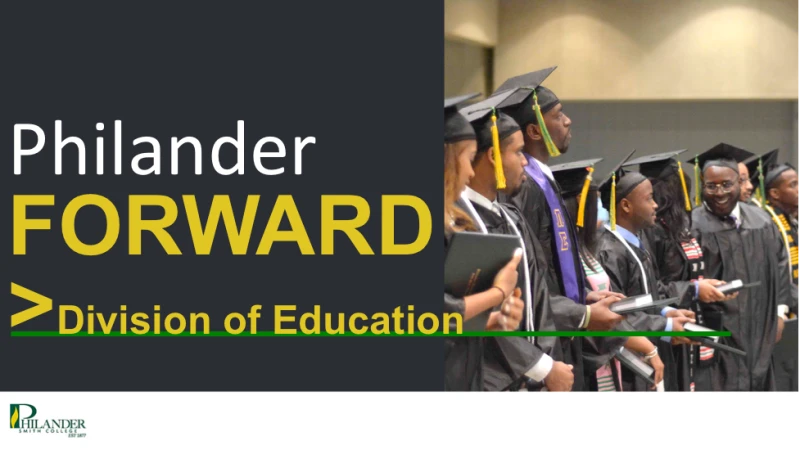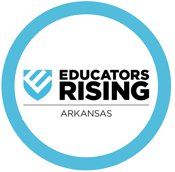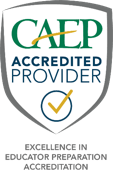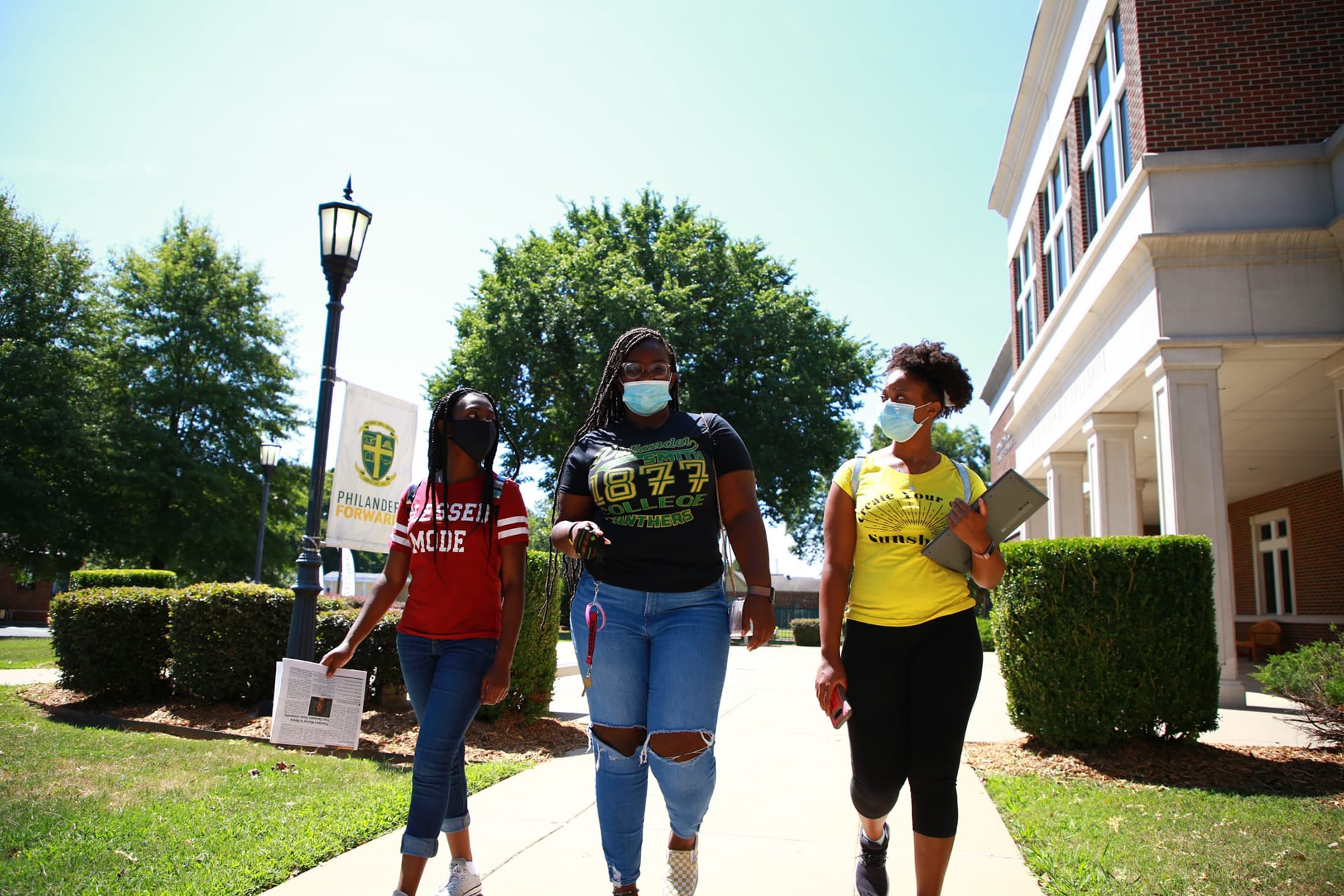Education Accreditation 2021

Annual Report Measures
Philander Smith College is an accredited Educator Preparation Provider that prepares culturally competent teachers, who understand, model and demonstrate a commitment to rigorous national standards for teaching and to improving teaching and learning for students in diverse urban and rural settings through face to face instruction, clinically supervised demonstration of pedagogical proficiency, technology-enhanced lessons and multiple measures of quality.

Mission
Aligned with the mission of the College, the mission of Educator Preparation Program (EPP) is to graduate academically accomplished professionals prepared to model critical and creative thinking to improve the quality of life for students, their families, the community, and a global society. Furthermore, the EPP is committed to preparing outstanding educators who will become community, national, and world leaders, promote excellence, equity, and model appreciation for diversity in the classroom as advocates for social justice.

Vision
The Educator Preparation Program (EPP) is guided by the shared vision and core values expressed in the Department’s Conceptual Framework. Within the Conceptual Framework, the context is outlined for how the institutional, state, and professional standards are addressed in the programs that prepare candidates to be the FORCE in the teaching/learning process. The conceptual framework influences the course of study, the strategies for teaching, program coherence, and appropriate assessment strategies to accurately measure student outcomes.

CAEP Annual Reporting Measures
The Division of Education was approved by the Arkansas Department of Education to offer the Educator Preparation Licensure Program in Elementary Education (ELED) K-6 in the fall of 2017. The program was designed to enable candidates to acquire knowledge, skills, and dispositions that are crucial to effective teaching. The Division is committed to preparing outstanding educators who will become community, national, and world leaders, promote excellence, equity, and model appreciation for diversity in the classroom as advocates for social justice. Aligned with the mission of the College, the mission of the Division of Education is to graduate academically accomplished professionals prepared to model critical and creative thinking to improve the quality of life for students, their families, the community, and a global society. During the 2020 school year, the program was impacted by COVID 19, and some clinical experiences had to be completed virtually. The focus has been to help students in K12 mitigate academic learning loss and to help student teachers with virtual, blended and traditional instruction.
CAEP (Council for the Accreditation of Educator Preparation)
CAEP (Council for the Accreditation of Educator Preparation) educator accreditation is a seal of approval that assures quality in educator preparation. CAEP accreditation, according to CAEP, provides a framework that allows educator preparation programs to continually self-assess and annually conduct evidence-based analysis of their programs and their efficacy. At Philander Smith College (PSC), this framework helps to guide our continuous improvement, and helps to ensure that our preparation program produces successful educators.

ANNUAL REPORTING MEASURES
CAEP has eight annual reporting measures, which are used to provide information to the public on program impact and program outcomes. We invite members from the public to review these standard-based measures in order to gain more insight about teacher quality and effectiveness at Philander Smith College. Below are the eight reporting measures for our undergraduate initial licensure programs with links to data tables and information that provide supporting evidence for each measure.
IMPACT MEASURES
Measure I: Impact on P-12 Learning and Development
The Division of Education uses multiple measures to determine the impact on learning and development. First, the Division reviews the PSC Education Preparation Growth Report provided by the Arkansas Department of Education. Secondly, we conduct interviews with completers and employers to evaluate program preparation and effectiveness in alignment with the Arkansas Teaching Standards and the InTASC Standards. Thirdly, we review state, district, and local achievement data. The participation rate in our interviews is 100% from our completers and our employers.
PSC Educator Provider Growth Report-1A
PSC Interviews of Completers and Employers Based on the InTASC Standards- 1B
PSC Document Review Results Summary- 1C
Measuring Completer Impact: Document Review
In collaboration with our K-6 partners, Philander Smith College will be able to measure completer impact on K-6 learning and development by reviewing K-6 student data, including ACT Aspire, assessment data in our recent completers’ classrooms. This information is made public by the Arkansas Department of Education and is located at the following addresshttps://myschoolinfo.arkansas.gov. This information allows the EPP to search and compare public schools and districts from across the State of Arkansas using the toggle navigation system. The Accountability At-A-Glance reports provides an overview of each school’s rating or letter grade (state accountability) and an overview of the ESSA School Index score for all students and subgroups of students (federal accountability). The ESSA School Index (federal accountability) includes students’ weighted achievement and growth on state required assessments for grades three through ten, graduation rates, and school quality and student success indicators. In addition, the report includes three-years of trend data on numerous indicators for student subgroups. Trend information will give the completer and the EPP a sense of how students are performing academically over time.
Unfortunately, due to COVID-19 the annual summative tests were not given this year. However, the EPP conducted online interviews with our new completers regarding the results of formative assessments for Pretest and Posttest assessments. The results, which were self-reported by the completers, indicated growth on the state-mandated assessments as measured by intermittent progress appraisals for all completer.
Statewide Report - 2019
Statewide Report - 2020
Statewide Report - 2021
The EPP also measures candidate effectiveness by using proprietary assessments to determine what students should know and be able to do. Candidate GPA’s and course progressions as well as candidate interviews are also used. Additionally, we use EPP-created assessments aligned to InTASC Standards and the results of the Praxis Principles of Teaching and Learning as well as the Praxis Multiple Subject Exam K-6. One hundred percent (100%) of our completers’ scores meet and exceed the state score on licensure assessments. Moreover, all of our 2019-2021 graduates were immediately hired and are now respected teachers in elementary schools in nearby districts.
Measure II: Indicators of Teaching Effectiveness
The Division of Education uses multiple measures to determine teacher effectiveness. First, the Division ensures that the cooperating and mentor teachers are highly qualified. Every cooperating teacher must have at least 5 years or more of effective classroom experience, they must complete all required yearly professional development and trainings, and they must be rated effective in their individual yearly summative appraisals by the principal or designee. Additionally, the cooperating teachers are interviewed and surveyed to provide feedback on the effectiveness of each candidate. Each, candidate receives ratings through Disposition and Classroom Observation Instruments.
The EPP also measures candidate effectiveness by using proprietary assessments to determine what students should know and be able to do. Candidate GPA’s and course progressions as well as candidate interviews are also used. Additionally, we use EPP-created assessments aligned to InTASC Standards and the results of the Praxis Principles of Teaching and Learning as well as the Praxis Multiple Subject Exam K-6. One hundred percent (100%) of our completers’ scores meet and exceed the state score on licensure assessments. Moreover, all of our 2019 graduates were immediately hired and are now respected teachers in elementary schools in nearby districts.
The following links are provided as measures of teacher effectiveness
Three Cycles of GPA’s- 2C
Three Types of Assessments Used By EPP- 2D
Completer GPA-2E
Disposition Data Summaries 2020 - 2F
Dispositions Recent Cycles- 2F
EPP Created Observation Assessment and Analysis- 2G
PSC Mentor Teacher Survey
Measure III: Satisfaction of Employers and Employment Milestones
This report provides a positive summary of satisfaction of Employers.
Satisfaction of Employers
Employer Satisfaction Online
Measure IV: Satisfaction of Completers
This report provides a summary of the spring/summer 2020-2021 survey administration of the Educator Completers Survey. The data averages were collected and reported for each evaluation benchmark.
Satisfaction of Completers Results
OUTCOME MEASURES
Measure V: Graduation Rate
PSC successfully prepares completers for success, and we validate claims by reviewing the results of assessment information. In fact, the EPP uses multiple measures to evaluate program effectiveness. One essential measure is the graduation rate. Our 2019 graduation rate is 100%.
Measure VI: Ability of Completers to Meet Licensing and Any Additional State Requirements
The Division of Education offers the Educator Preparation Licensure Program in Elementary Education (ELED) K-6.
The Elementary Education EPP is designed to enable candidates to acquire knowledge, skills, and dispositions that are crucial to effective teaching. All educator preparation program majors interested in pursuing a degree in Elementary Education leading to licensure must meet Philander Smith College’s graduation and Arkansas Licensure requirements.
Admission to the college does not automatically admit the education major to the Educator Preparation Program. A “major” is a student who has officially declared education as their chosen field of study; a “candidate” is an education major that has been officially admitted to the Educator Preparation Program. All education majors must meet the published guidelines for each program.
Annual Assessment Performance Reports (Licensure Assessments)
Measure VII: Ability of Completers to be Hired in Education Positions for Which They Have Prepared (Ability To Be Hired)
PSC surveys graduating seniors and recent graduates each year to track employment trends. Survey data indicates that all of our graduates obtain employment in their field upon graduating. In fact, our candidates were immediately hired after graduation by the Little Rock School District. All were hired in Elementary Education and began their teaching career in the fall of 2019.
Milestone. They are the first group of teachers who had to demonstrate competence in both face-to-face and on-line teaching due to COVID-19.
Title II Report 2017
Title II Report 2018
Title II Report 2019
Title II Report 2020
Measure VIII: Student Loan Default Rates and Other Consumer Information (Loan Rates)
The official cohort default rate for the current, fiscal year 2018 cohort is 21.8%. The 3-year cohort rate was released in September 2021. The 2019 fiscal year rate will be released in September 2022.
Additional state information regarding educator preparation information is located at https://dese.ade.arkansas.gov/Offices/educator-effectiveness
The US Department of Education (USDE) releases official cohort default rates once per year. A cohort default rate is the percentage of a school's borrowers who enter repayment on certain Federal Family Education Loan (FFEL) Program or William D. Ford Federal Direct Loan (Direct Loan) Program loans during a particular federal fiscal year (FY), October 1 to September 30, and default or meets other specified conditions before the end of the second following fiscal year.
ARKANSAS LOAN DEBT AVERAGES $26,799
According to USDE data, Arkansas’ 351,000 college tuition borrowers carried an average of $26,799 in student loan debt per student, slightly less than the $27,857 average balanced held by the other 43.6 million Americans that are still paying for college. At Philander Smith College, 86.0% of incoming students take out a loan to help defray freshman year costs, averaging $6,654 apiece. This amount includes both private and federally funded student loans.
The average federal loan is $6,597, which is 119.9% of the first-year borrowing cap of $5,500* for the typical first-year dependent student.
Statewide Report - 2019
Statewide Report - 2020
Statewide Report - 2021


